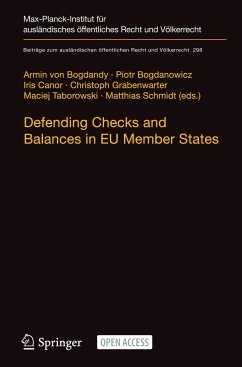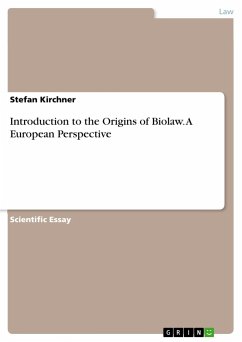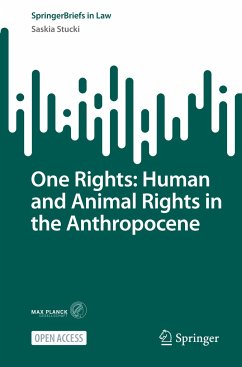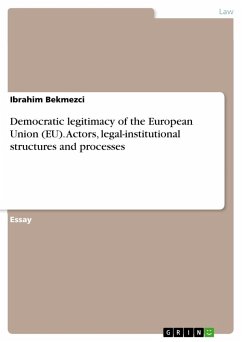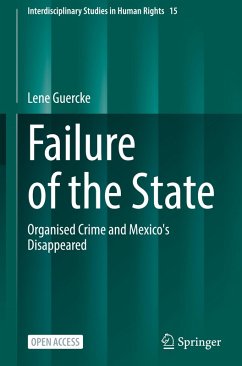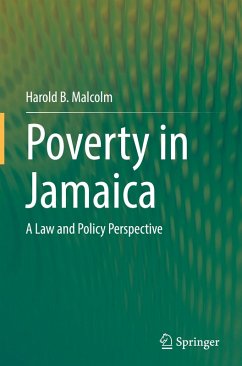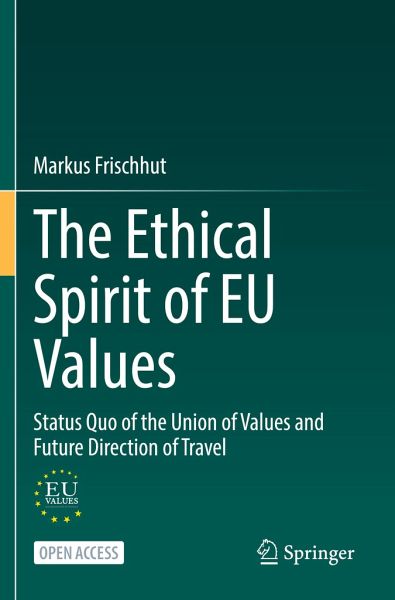
The Ethical Spirit of EU Values
Status Quo of the Union of Values and Future Direction of Travel

PAYBACK Punkte
16 °P sammeln!
This open access book, summarising the research conducted at this Jean Monnet Chair, seeks to identify the ethical spirit of European Union (EU) values. EU integration began at the economic level; human rights were only added at a later stage. Finally, the Lisbon Treaty turned the EU into a 'Union of values' by enshrining certain concepts in Art 2 TEU. This provision can be seen as a hub linked to various other provisions of EU primary and secondary law. The values contained therein have, amongst others, been applied to two areas (digitalisation and non-financial reporting, partly in sports), ...
This open access book, summarising the research conducted at this Jean Monnet Chair, seeks to identify the ethical spirit of European Union (EU) values. EU integration began at the economic level; human rights were only added at a later stage. Finally, the Lisbon Treaty turned the EU into a 'Union of values' by enshrining certain concepts in Art 2 TEU. This provision can be seen as a hub linked to various other provisions of EU primary and secondary law. The values contained therein have, amongst others, been applied to two areas (digitalisation and non-financial reporting, partly in sports), and further specified in others (health and partly in sports).
This book analyses the evolution of values (ratione temporis) and the questions of who is entitled and who is obliged (ratione personae). Besides the external perspective (ratione limitis; e.g., Brexit), it focuses on the composition of the EU's common values (ratione materiae). As Art 2 TEU can be viewed as a hub, it is essential to focus on various relations, not only between values, but also between values and other provisions of EU law, as well as other concepts.
Based on this description of the status quo, the book subsequently addresses a possible future direction, arguing for an additional narrative (trust), an additional value (environmental protection), and a more communitarian Union. In closing, apart from the classical commitment of the EU and the Member States to uphold the values of the EU, the book discusses the level of individuals and values as virtues. Various figures and tables complement this overview of the status quo of the Union of values and outline of its future direction.
This book analyses the evolution of values (ratione temporis) and the questions of who is entitled and who is obliged (ratione personae). Besides the external perspective (ratione limitis; e.g., Brexit), it focuses on the composition of the EU's common values (ratione materiae). As Art 2 TEU can be viewed as a hub, it is essential to focus on various relations, not only between values, but also between values and other provisions of EU law, as well as other concepts.
Based on this description of the status quo, the book subsequently addresses a possible future direction, arguing for an additional narrative (trust), an additional value (environmental protection), and a more communitarian Union. In closing, apart from the classical commitment of the EU and the Member States to uphold the values of the EU, the book discusses the level of individuals and values as virtues. Various figures and tables complement this overview of the status quo of the Union of values and outline of its future direction.




